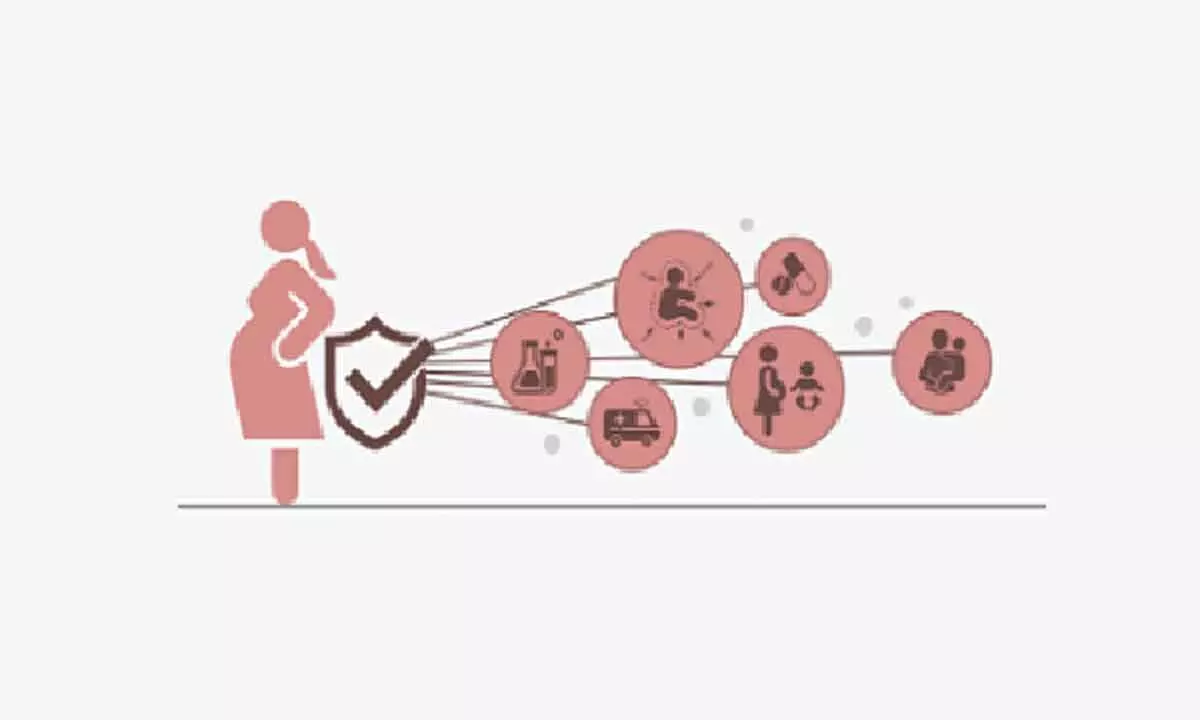Live
- Vijayawada: Inter-district offender nabbed, Rs 26 lakh loot seized
- Congress cancels all programmes for 7 days in honour of Dr. Manmohan Singh
- Nara Lokesh Pays Tribute to Manmohan Singh, says he is a visionary leader
- 6th World Telugu Writers meet from Dec 28
- Sri City role in strengthening Atmanirbhar Bharat lauded
- PCC chief accuses PM of lying on Visakha steel
- Vaikunta Dwara Darshan: Only those with tokens, tickets to be allowed
- Bandi Sanjay visits aspirational block in Narayanpet
- YSRCP calls for statewide protests today
- Power Tariff Hike: Jagan’s protests nothing but hypocrisy says Minister
Just In
Maternity in India under-insured by corporates: Plum report


The average cost in Bengaluru is 55,000, Chennai 53,000, Mumbai 45,000, New Delhi 51,000 and Hyderabad 45,000. 66% of Plum’s customers have maternity covers (of Rs. 50,000); of those 15% have maternity covers between Rs 1,00,000 and Rs 1,25,000
Bengaluru: Plum, an employee health insurance platform, has unveiled its report – 'Is maternity under-insured in India?' The report states that maternity covers offered by corporates are not in alignment with the rising cost of maternity in urban cities in India.
The average cost of child-birth (vaginal births) in tier 1 cities and metros in India at private hospitals ranges between Rs 45,000 – Rs 55,000. On the other hand, the cost of C-sections in private hospitals can range between Rs 70,000 and Rs 2,00,000, depending on the level of complications. However, while 66% of Plum's customers have adopted maternity covers, a majority of them cover expenses up to Rs 50,000 for up to 2 children. Only 15% of Plum's customers, which are new-age companies, have taken covers between Rs. 1,00,000 and Rs. 1,25,000 for maternity. These companies include Twilio, Mintmesh, Evenflow, Vonage, Ironsides among others.
The average cost in Bengaluru is Rs 55,000, Chennai Rs 53,000, Mumbai Rs 45,000, New Delhi Rs 51,000 and Hyderabad Rs 45,000. Through its report, Plum urges all organisations, to make workplaces more favourable for women employees by providing them with adequate insurance for maternity (important note: maternity is an optional benefit and many organisations do not opt for it due to employee demographics and cost). Standalone retail policies for maternity are non-existent in India. Additionally, in retail health insurance, there is a 90-day waiting period from the time of the child-birth for the baby to get medical insurance coverage. Group Health Insurance (GHI) policies can cover female employees and female spouses for expenses on maternity treatment, infertility and any prenatal complications and offer a baby day cover from day 1.
According to Plum's report, ideal maternity benefits should provide a minimum cover up to Rs 1,00,000 for tier1 cities and should have baby day covers from the very first day. The report further suggests that for workplaces to be considered equitable, they must consider the inclusion of surrogacy and adoption leave policies and benefits, same-sex partner maternity and leave benefits and paternity leave and benefits. The CEO and Cofounder of Plum, Abhishek Poddar said, "Companies today are in a position to do much better for their employees. This is not about insurance alone, this is an opportunity for us to kindle conversations around workplace equity, social justice and forward thinking. When it comes to education, women in our country are doing better than men (i.e, growing at a faster rate), but as a culture, we seem to be making it harder for them to return to work after giving birth. Companies have a responsibility towards this end, first by having clear-cut policies and then implementing them with passion and without prejudice."
Plum itself has a Rs. 100,000 cover for maternity and a baby day one cover.
He further adds, "The inclusion of a comprehensive maternity cover in Group Health Insurance comes with multiple advantages. Besides the shorter waiting period and baby cover from day 1, it goes a long way in making the workplace more equitable for women and providing them with a sense of financial security."
Healthcare inflation in India is rising at 18-20% annually. With this backdrop, lack of proper maternity benefits could be one of the key reasons for a drop in the percentage of the women workforce from 26% in 2005 to 20.3% in 2019. Plum, which counsels its clients on the best health and wellness benefits, strongly advocates a higher benchmark for maternity benefits in group health insurance. The company also aims to accelerate the pace of health insurance adoption in India and encourage all businesses to think about employees' health-first.

© 2024 Hyderabad Media House Limited/The Hans India. All rights reserved. Powered by hocalwire.com






